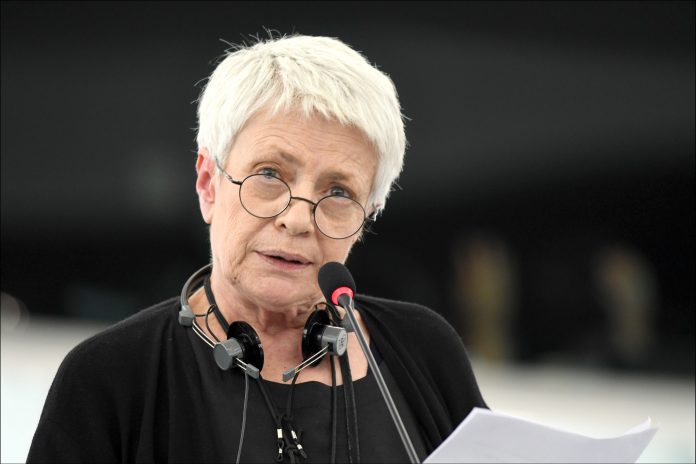‘Fake news’ should not be used to discredit or to criminalise critical voices, MEP Barbara Spinelli (Independent, Italy) warned ahead of the vote today in the European Parliament on her report on media pluralism and media freedom in the EU.
The vote comes as the state of press freedom and attacks on journalists come under the spotlight for World Press Freedom Day. The GUE/NGL rapporteur said that her proposals aim to “protect and promote the independence and pluralism of the media – both ‘traditional’ and online – without multiplying the means to control or to restrain them.”
“Disinformation on the internet has a viral and aggressive character that should not be underestimated. A few IT giants from outside the EU (Google, Facebook, Apple, and Microsoft) exert immense power over news selection and control as well as in users’ surveillance and profiling. However, censorship – especially if entrusted to the same giants – cannot be the right answer,” Spinelli continued.
The Italian MEP called for supervision of online content to be the responsibility of independent bodies instead:
“The removal of the most dangerous internet content – such as child pornography or terrorism – is often a necessary solution, but its implementation cannot be devolved to private companies and cannot disregard the three requirements enshrined in the International Covenant on Civil and Political Rights, i.e. necessity, proportionality and legitimacy. The report calls for supervision of this task to be assigned to independent bodies and for the protection of the principle of net neutrality and of the right to data protection.”
“For the very same reasons, we have expressed concerns about criminal defamation laws, underlining in particular the chilling effects that they might have on the right to impart and receive information.”
Spinelli took to task those who claim that ‘fake news’ alone was determining election results:
“The most reliable analyses agree on the fact that neither fake news, psychographic profiling of users, nor Cambridge Analytica determined the results of the American or French elections. The same is true for the Brexit referendum. Accusing an algorithm for those occurrences is an easy way out to avoid honest analysis of the electoral results.”
In a context of widespread erosion of independence of the media in the EU, Spinelli recognised the relevance whistleblowers have in upholding investigative journalism: “we pay tribute to those investigative journalists who have paid for their independence with their life, in particular Daphne Caruana Galizia and Ján Kuciak,” she concluded.
Flickr/European Parliament/CC BY-NC-ND 2.0

“Disinformation on the internet has a viral and aggressive character that should not be underestimated," said Barbara Spinelli.
